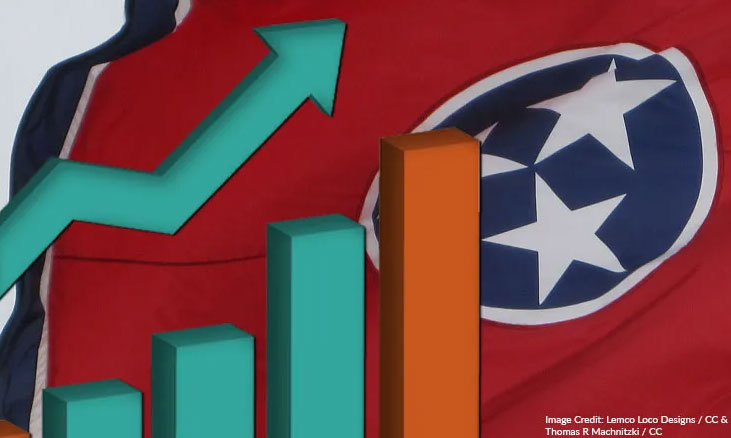Image Credit: Lemco Loco Designs / CC & Thomas R Machnitzki / CC
The Center Square [By Jon Styf] –
The state of Tennessee has collected $585.8 million more than budgeted in taxes and fees in the first three months of the fiscal year.
That’s after the state collected $4.6 billion more than its initial budgeted estimate for last fiscal year. Tennessee’s State Funding Board heard testimony Thursday from economists as it worked toward establishing next fiscal year’s estimates.

In October, Tennessee collected $1.5 billion, which was $178 million more than the budgeted estimate and an increase of $125 million from what was collected in October 2021.
The largest collection came from sales tax, where Tennessee collected $1.14 billion. That’s above the $1 billion budgeted estimate and more than an 11% increase from the $1.02 billion collected in October 2021.
“October sales tax receipt growth, reflecting September taxable sales activity, made up 92% of the month’s growth from last year,” Tennessee Department of Finance and Administration Commissioner Jim Bryson said. “The largest retail sales gains for the month came from the categories of building materials and eating and drinking places. All other state tax categories combined experienced limited growth.”

The state collected $7.2 million more than estimated in mixed drink taxes for the month and $13.8 million more than estimated for the year.
Tennessee’s combined franchise and excise taxes were $28.7 million more than the October budgeted estimate of $84.4 million.
“In the first three months of the fiscal year, we are pleased to have outperformed our budgeted estimates by nearly 13% and to have growth, compared to last year, near 10%,” Bryson said. “However, we expect these elevated measures will lessen as we progress through the remainder of the fiscal year. As such, we will continue to monitor economic activity and revenue trends to ensure fiscal stability.”


About the Author: Jon Styf, The Center Square Staff Reporter – Jon Styf is an award-winning editor and reporter who has worked in Illinois, Texas, Wisconsin, Florida and Michigan in local newsrooms over the past 20 years, working for Shaw Media, Hearst and several other companies. Follow Jon on Twitter @JonStyf.



One Response
No surprise. Every time I buy groceries the cost of the groceries themselves are higher, therefore the sales tax is higher. Lowering the sales tax would bring down tax receipts to anticipated levels and drop my inflated grocery bill at the same time.